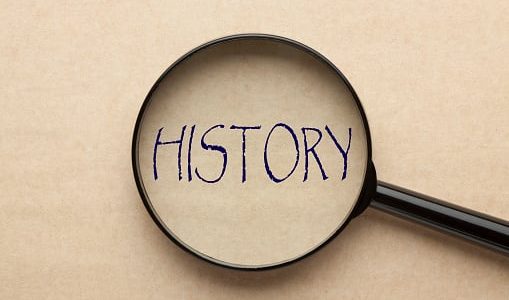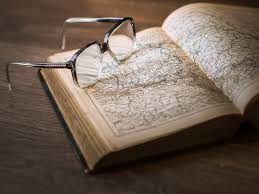Antichità Napoli are some of the most fascinating objects in our shared cultural heritage. They span the timeline of art history and often pre-date modern religions and nations.

But they can also be vulnerable to illicit trade. When looted, their provenance is difficult to track, since they are rarely registered on a database prior to export.
When it comes to art, authenticity can be a complex topic. There are many pieces that are considered antiques, vintage, or antiquities that are not authentic. Some of these are sold by unscrupulous dealers or auctioneers, while others may simply be overlooked. It is important for those who are interested in collecting or selling these items to understand the difference between authentic and non-authentic pieces. This will help ensure that the pieces they are selling or buying are genuine and that they have been properly sourced.
While there was a time when artifacts were traded without documentation, today’s market is regulated by strict international conventions and laws. These regulations exist to prevent valuable cultural heritage from being looted, illegally excavated, or lost to history. The global antiquities market is at a critical junction, where preservation and commerce intersect. It is crucial for collectors, auctioneers, and dealers to be aware of the complexities of this dynamic and to conduct thorough provenance research.
In recent years, the concept of authenticity has become a prevalent ideal in Western culture. Increasingly, intellectuals and artists have embraced this ideal and sought to radicalize it by challenging established codes and promoting alternative lifestyles. As a result, the idea of authenticity has become even more central to contemporary social and political discourse.
Authenticity is an essential aspect of the antiques business. As a dealer, you must be able to verify the authenticity of your pieces and provide buyers with the necessary documentation to do so. This will help build trust with your customers and make the sales process more transparent. Additionally, you should always disclose the condition of your items. This will help you establish a reputation for honesty and integrity in the art world.
While some people may argue that it is acceptable to buy and sell antiquities with dubious provenance, this practice can perpetuate the cycle of illicit excavations, and unethical acquisitions in the art world. As a result, the global antiquities market is facing major challenges, and it is important for collectors to be aware of these issues and act responsibly.
Documentation
In the world of antiquities, documentation describes how an artifact made it into a collection and into the hands of a dealer or private collector. Documentation is especially important with the best quality and rarest items, and in the case of a museum holding an illicit artifact that may be subject to return to its country of origin or even destruction.
When an archaeological site is excavated, detailed records are kept of all excavation units and features, with tags to identify each object. These records are then kept on file permanently.
Internet antiquities sales lack this level of documentation, and that is a big problem. This paper discusses potential cooperative responses that might better protect good faith consumers from purchasing looted artifacts, and that can also help put a stop to criminal activity.
Taxes
When it comes to taxes, antiquities can raise some interesting issues. While treasures unearthed through archaeological excavations can be considered cultural heritage subject to strict laws that govern their protection and repatriation, artifacts purchased in the market are not necessarily exempt from customs duties and taxes. This is especially true for pieces that straddle the line between art and design or are made from hybrid materials like metal. As a result, many dealers are now shifting their acquisition strategies to focus on domestic inventory or high-certainty Chapter 97 goods.
Antiques are objects that date from ancient times, including the Classical antiquity of Greece and Rome, ancient Egypt and ancient Near Eastern cultures. They also can refer to pieces from prehistoric periods and Asian civilizations. Antiquities are generally valued for their rarity, beauty or historical value. They are often heirlooms passed down from generation to generation and are a great source of pride and joy for their owners.
The illegal trade in antiquities is a serious problem, and one that affects the world’s heritage. It is a form of looting that must be stopped, and this requires cooperation between archaeologists, museum curators and antiquities dealers. The legitimate antiques industry must also do more to combat the false association between the trade and organised crime and money laundering.
London is home to a rich and diverse antiques community, with some of the world’s leading private collections and museums. However, it’s important to choose a dealer carefully to ensure you buy authentic international antiques. It is best to work with dealers who are members of trade associations, which provide additional safeguards for both the buyer and seller.
A reputable antiques dealer will be able to explain the provenance of the item you’re buying. If you’re not sure about the origin of an object, ask a dealer to provide documentation or a letter of authentication. This will help you determine if the piece is genuine and whether it’s worth the investment. You should also avoid buying antiques from sellers who do not offer a warranty or return policy. This way, you can avoid the hassle of dealing with a bad experience and possibly losing your investment.
Repatriation
Repatriation is the return of cultural property to its country or culture of origin. This differs from restitution, which refers to the return of personal property from one individual to another. Museums are increasingly embracing provenance research and voluntary repatriation, reflecting a shift in understanding of museums’ responsibilities to the past and a recognition that an object’s full journey enriches its meaning and fosters deeper international relationships.
However, despite this promising trend, the issue of repatriation remains contentious. Proponents of repatriation argue that cultural objects belong in the countries and cultures where they were created or, in the case of historical or archaeological materials, found. They also argue that many of the foreign objects in Western museums were gathered through illicit and immoral means, including pillaging or theft. Opponents of repatriation cite the harms that could come from promoting a narrow sense of national identity and the fact that “universal” museums are largely in wealthy Western countries that gained their collections through colonial enterprises.
In addition to the challenges that can arise from these tensions, museums may be hampered by laws or policies that prohibit or restrict their ability to repatriate. For example, institutions that receive federal funding in the United States must abide by the Native American Graves Protection and Repatriation Act (NAGPRA; 1990). This law requires that museums create inventories of Native human remains and associated funerary objects and return them to their lineal descendants or tribes if requested. The act also stipulates that museums must consult with tribal leadership before making any decisions about the repatriation of cultural items.
Even without such legal restrictions, the reality is that repatriation can be a difficult process. Many museum curators and staff find it emotionally challenging to part with objects that have been in their collections for decades, or even centuries. Additionally, the vast majority of museums’ collections are not formally in their custody; rather, they hold objects on loan from private donors or institutions, such as universities. As a result, they are often reluctant to make the financial and logistical arrangements that would be necessary to repatriate an object.



